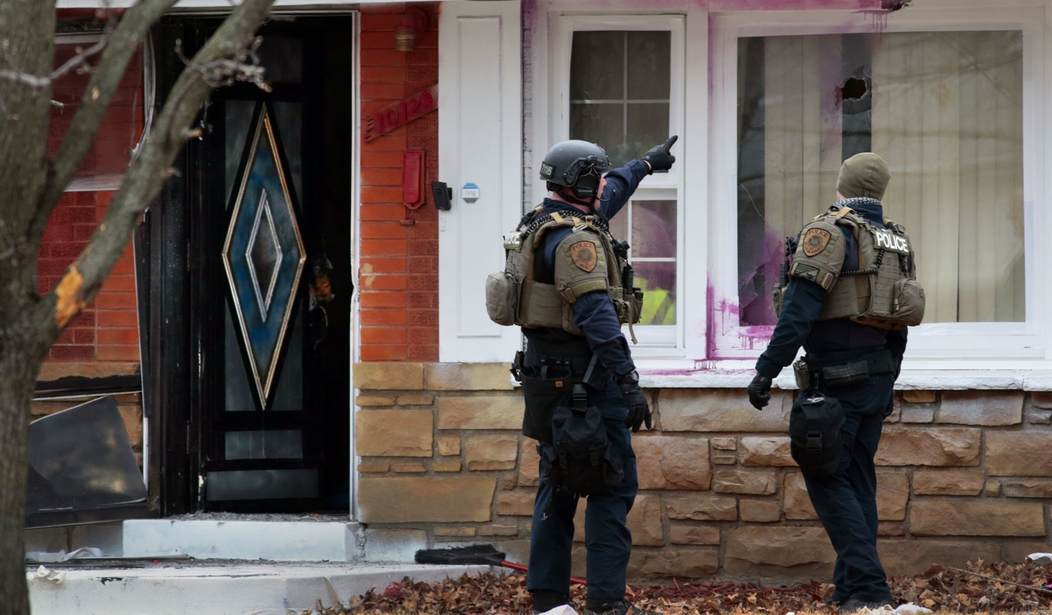The federal government says yes. The city of St. Louis says yes. And plenty of local law enforcement officers across Missouri agree that the Second Amendment Preservation Act, while well intended, is going to cause problems for their department. But are they right, or are they misreading the law?
Several southeast Missouri police chiefs and sheriffs recently sat down with local TV station KVFS to discuss the Second Amendment Preservation Act, and all of them expressed some reservations about the new law, which took effect last weekend after a judge refused to grant an injunction sought by the city of St. Louis and two counties; a move that was also supported by the Biden Justice Department.
“We utilize the federal system and federal authorities to take the worst of the worst criminals off the street,” explained Sheriff Dobbs.
“We can put some of these guys, who are going to be repeat offenders, in prison,” Chief Whiteley added. “In federal prison. And have them out of our society for a long period of time.”
“If they have a gun in possession with the drugs, that normally would be a federal offense,” Russ Oliver explained. “We could then refer to the federal authorities. We can’t do that now.”
Chief Wes Blair put out guidance to his officers ahead of the Second Amendment Preservation Act taking effect.
Now, if a federal agency requests anything, it must go all the way up the chain of command.
“And even the criminals now see that our hands are being tied on that and we can’t even work together,” Chief Blair admitted.
A portion of Cape Girardeau’s new requirements says, “these steps may seem overreaching and absurd.”
“They do seem overreaching and absurd,” Chief Blair said.
One of the biggest concerns about SAPA – the exact definition of providing a federal agency “material support.”
“Can they not even meet in our parking lot before they do a search warrant that might involve a gun,” Chief Blair wondered. “Is that providing material support?”
I have to say, I think these agencies are erring on the side of caution, to the point of absurdity. Let’s take a look at the text of the new law.
The following federal acts, laws, executive orders, administrative orders, rules, and regulations shall be considered infringements on the people’s right to keep and bear arms, as guaranteed by Amendment II of the Constitution of the United States and Article I, Section 23 of the Constitution of Missouri, within the borders of this state including, but not limited to:
(1) Any tax, levy, fee, or stamp imposed on firearms, firearm accessories, or ammunition not common to all other goods and services and that might reasonably be expected to create a chilling effect on the purchase or ownership of those items by law-abiding citizens;
(2) Any registration or tracking of firearms, firearm accessories, or ammunition;
(3) Any registration or tracking of the ownership of firearms, firearm accessories, or ammunition;
(4) Any act forbidding the possession, ownership, use, or transfer of a firearm, firearm accessory, or ammunition by law-abiding citizens; and
(5) Any act ordering the confiscation of firearms, firearm accessories, or ammunition from law-abiding citizens.
So, those are the no-go areas for local law enforcement when it comes to helping to enforce any federal gun control restrictions. I don’t see anything there that would preclude local police from working with the ATF, DEA, or any other alphabet agency in going after drug offenders, even if a gun might be discovered in the process of the investigation.
Note that all of these restrictions mention “law-abiding citizens,” which indicates to my non-lawyer self that anyone who is not a law-abiding citizen doesn’t have any protections under the Second Amendment Preservation Act. And given that a later section of SAPA refers to potential sanctions against any state or local law enforcement agent who “knowingly deprives a citizen of Missouri of the rights or privileges” they possess under the Second Amendment and the Missouri constitution, I’d argue that cooperating with the feds on drug cases or search warrants where a gun may be discovered would still be allowed under SAPA.
Of course, I’m not an attorney, but one easy way to address the concerns of law enforcement would be for Missouri Attorney General Eric Schmitt to issue an opinion clarifying when state and local law enforcement can cooperate with federal officials. It might take a request from a law enforcement agency or lawmaker in order for the AG to do so, but to me that seems like the simplest way to clear up any confusion over what the law does and does not allow.









Join the conversation as a VIP Member